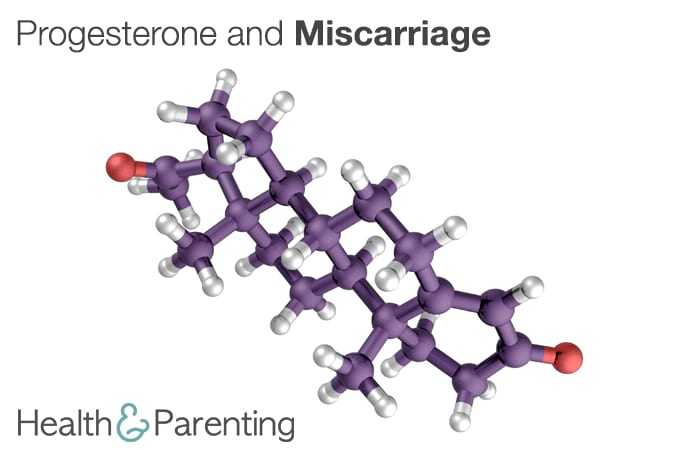A miscarriage can be one of the most devastating things for a couple to go through. If you have had several miscarriages over the course of a few years, laboratory tests are available to help you determine what the root cause might be.
One of the key hormones in pregnancy viability is progesterone. Progesterone and miscarriage are tightly linked, as in most women who miscarry have low levels of progesterone in early pregnancy. In fact, a simple blood test taken in early pregnancy that measures your progesterone levels has been found to be key in gauging pregnancy viability. For women who have suffered miscarriages, this can be great news and is definitely a test that they should ask for when they visit their health practitioner.
In fact, if you have bleeding, cramping or spotting in early pregnancy most doctors today will order an ultrasound to check the pregnancy. You should also ask for them to check your progesterone levels. If the progesterone levels are low in early pregnancy, it could mean there is a problem with the pregnancy. However, a study out of The University of Birmingham England, suggests that when progesterone levels are at normal or high range, the women normally go on to have a normal pregnancy.
Additionally, for women who have a history of first trimester miscarriage, progesterone supplements can be prescribed. Most often, these supplements are taken until the end of the first trimester, and this has been a proven way to reduce the risk of first trimester miscarriage.
Why progesterone, you ask? In early pregnancy progesterone and estrogen play key roles in preparing the uterus for pregnancy. When you are not pregnant, and in the first trimester, progesterone is produced by your ovaries. However, as pregnancy progresses the progesterone production is taken over by the placenta. Having normal levels of progesterone keeps the lining of your uterus thick and healthy, optimal for pregnancy to be sustained. Any drop in the levels of progesterone can impact the health of the uterine lining, which in turn can lead to spotting, bleeding and ultimately miscarriage. This is just one reason that you should report any early bleeding or cramping to your physician. If given in a timely manner, progesterone supplements can help you to maintain your pregnancy.
The link between progesterone and miscarriage is good news for those trying to conceive, especially if you have a history of miscarriage. If you become pregnant after a miscarriage, ask your doctor to check your progesterone levels. This simple test could be the difference between a viable pregnancy and heartbreak.
Written By Stef, Mom of 4 @Momspirational
This information is not intended to replace the advice of a doctor. Health & Parenting Ltd disclaims any liability for the decisions you make based on this information. All contents copyright © Health & Parenting Ltd 2014. All rights reserved.










